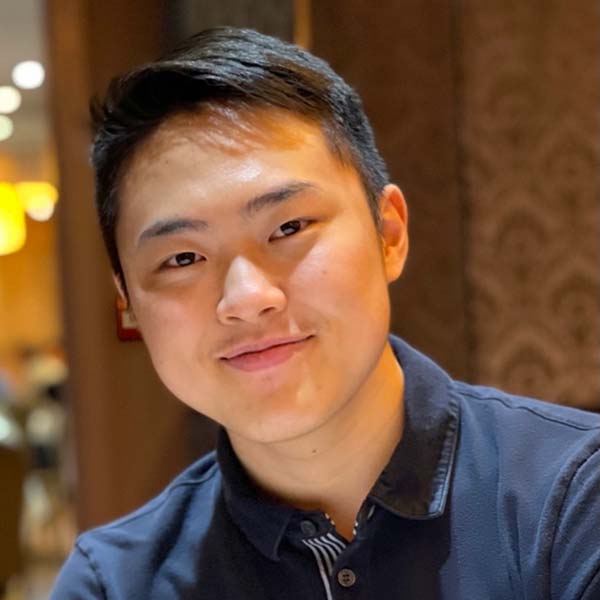Hometown / Home Country
Taipei/Taiwan
Current City / Current Country
Hong Kong/Hong Kong
Why did you choose Taubman College’s new program in Urban Technology?
My primary interest has always been in cities and urban planning. When I was applying for college, the Urban Technology program stood out the most because it was the only undergraduate course that combined practical design with advanced technology to approach issues in modern cities. As someone who wants to drive positive change in evolving urban environments, I value the program’s emphasis on developing user-centered platforms to enable smoother interactions between people, infrastructures, and services. The small class size and studio space are also important factors, as I could collaborate with others to share ideas and conduct group-oriented projects that model those in a professional workspace. In a world where technology increasingly becomes a seamless part of our lives, I think Urban Technology has the most potential in helping me shape equitable cities and create tangible impacts both locally and globally.
What excites you about urban technology as a field?
In high school, I learned about urban environments and design technology as two separate subjects. This new discipline that brings the two fields together would constantly encourage innovative thinking and inclusive design, which to me are both challenges and opportunities at the same time. One of the appealing aspects is the exploration of interactions between human users and digital services through concepts like interaction and service design. I am also interested in how programming in languages like Python could lead to powerful applications and data analysis that could alleviate urban stresses and assist policy making. By immersing myself in this progressive field, I would be equipped with the technical skills to design simple interfaces that bridge the gap between the physical and digital realms, in order to meet the needs of a wide range of users and create sustainable communities.
What is your favorite city and why?
So far, of all the places I have visited, it would be Singapore. The city’s extensive use of green design is not only shown in grand landmarks, but also ingrained in its planning culture. From apartments to malls to transit hubs, almost every building integrates greenery, open space, and renewable energy installations into its structure. Singapore has also adopted New Urbanism quite well. Its neighborhoods are not only pedestrian-friendly, but they feel connected. When I visited our old single-family home in a residential community, it took me less than 5 minutes to walk to the nearest corner store, along with a few local shops and restaurants, and with very few cars in sight. Often Hong Kong is compared with Singapore as both are former British port colonies, but while the former feels livelier and is a global financial hub, the latter is more balanced in terms of addressing major urban issues including housing, education, and pollution, as well as accommodating a more diverse range of cultures into its built environment.
The new Urban Technology program is unique, with first-year students beginning classes in January. How are you spending your time this fall?
During this fall, I am learning Python through online courses to become familiar with the programming language, which is a crucial part of the Urban Tech program and would allow me to code for design projects that address relevant urban issues. But just learning from a screen can be tiring. So I plan to work with the Urban Land Institute, a nonprofit urban design organization, and collaborate with professional architects and planners to solve real-world problems in Hong Kong, such as overpopulation, traffic congestion, and pollution. Additionally, my book list has never been more diversified, from historic accounts of the Great Migration to criticisms of top-down town planning to evaluations of smart cities. And whenever I go out, I would always be on the lookout for niche and exciting things, which in a bustling metropolis, are usually just around the corner.
What are you most looking forward to at Michigan?
As a huge sports fan, I am really excited to watch the seasonal games, especially football and basketball. The passion and support that UM students demonstrate to their teams are just unrivaled, and it would be a once-in-a-lifetime experience to be a part of that energetic atmosphere. The diverse clubs are also a major reason why I decided to join UM. Student groups like Animania, Jazz Ensemble, and even the Squirrel Club are just some of the organizations that I look forward to joining. Through initiatives like the Michigan-Mellon Project on Egalitarianism and the Metropolis, I would learn to view socioeconomic challenges through the perspectives of impoverished residents to shape a more inclusive environment. Overall, it is this united spirit that makes Michigan a perfect playground for testing new ideas and innovations that would help me find my own place in this multicultural community.

